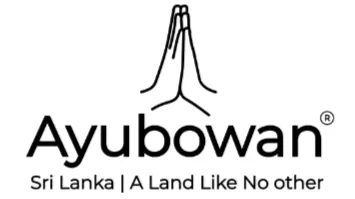
FROM OUR FOUNDERS...
“Ask what if a vacation to Sri Lanka could appease your need for adventure and your conscience? Ask what makes Ayubowan Sri Lanka stand out as an ethical travel company? We go above and beyond to bring the island’s hidden treasures and best place-based ideas into light, and the diversity and regenerative experiences that conventional tour operators don’t tell you. Thinking outside the box, we look to add ideas that showcase Sri Lanka’s appeal. Check out our favorite list of inspirational themes off the usual tourist grid. Like we were in a movie, a piece of epic music is the part we would enjoy most. Similarly, we take immense pride in painstakingly spotlighting these one-of-a-kind themes that only a dedicated Sri Lanka specialist can offer. These are adventures that go deeper, provide greater access to the essence of life on the island, have a point of view on a destination, and connect locals and travelers in meaningful ways. In this rapidly changing world, we believe that our specialist acumen is more critical than ever, and these ideas are another way we hope to pass on our know-how. ”
~ Priyantha, Co-Founder
Why Do We Offer Inspirational Themes?
Place-based Regeneration
Sri Lanka’s diversity of landscapes and cultural heritage calls for unique products that deeply respect and regenerate the lives of the local environment and traditions. Our themes center on designing travel experiences rooted in the unique identity and needs of each destination in Sri Lanka.
Community Inclusion & Empowerment
Many communities in Sri Lanka – be they rarely visited remote eco-lodges or wilderness sanctuaries, reconnections with the long-lost Indigenous people, exploring off-the-beaten path hiking trails in the country’s tea communities or grassroot impact projects – relying on tourism for livelihoods. This theme focuses on shifting power to local stakeholders, supporting community-led initiatives and ensuring equitable distribution of tourism benefits.
Protecting Nature, Local Resources, Climate Action & Resilience
Like many of the world’s top tourist destinations, Sri Lanka faces its own set of environmental and socio-economic challenges. The impacts of climate change are becoming increasingly evident—from rising sea levels that threaten coastal regions and beachside communities, to deforestation that disrupts ecosystems and endangers wildlife habitats. The natural landscape is shifting rapidly, and weather patterns are becoming more extreme and unpredictable, leading to natural disasters. These environmental stresses not only affect the local population and biodiversity but also pose significant risks to the sustainability of the tourism industry itself.
The Solution
This theme highlights the critical importance of promoting ethical and sustainable tourism practices as part of the solution. By encouraging responsible travel, protecting natural and cultural heritage, and empowering local communities, ethical tourism can play a pivotal role in for example in supporting climate adaptation efforts and enhancing the island’s resilience. It offers a pathway to balance economic growth with environmental stewardship—ensuring that Sri Lanka remains a vibrant and viable destination.
We invite you to check back often to find more rewarding themes. We also welcome fresh ideas and tourism-related initiatives that celebrate the unique charm of Sri Lanka. If you represent such a project or concept, we’d love to hear from you. Get in touch—there’s a good chance we can feature it here to help gain valuable exposure in the North American travel market.
The Pekoe Trail, Sri Lanka’s long-distance hiking trail

The Pekoe Trail is a 300+km walking trail traversing the central highlands of Sri Lanka. The trail is designed to allow visitors to discover the varying terrain, history, culture, food, and local communities across Sri Lanka’s hill country by foot.
Made up of 22 stages, the hikes can be completed in short sections, or as part of a multi-day experience taking you through an eclectic mix of hill towns, tea plantations, remote villages, sanctuaries, viewpoints, forests, and cultural and historical locations. The interconnecting trail demonstrates the island’s diversity, encourages sustainable travel and brings economic opportunity to rural communities to promote a more holistic traveler experience that embraces adventure, nature, wellness, and sustainability.
Tamarind Gardens Farmhouse & Community Engagement

At Tamarind Gardens Farm Stay, we believe that true travel experiences come from meaningful interactions. Exploring the local village allows guests to step into the daily lives of the community, gaining firsthand insight into the customs, traditions, and simple joys of rural Sri Lanka. As you wander through the village, you’ll see families tending to their gardens, children playing under the shade of mango trees, and artisans practicing their crafts in open workshops. This experience goes beyond sightseeing—it’s about building connections and understanding the local way of life. You’ll be welcomed with genuine warmth, invited to share conversations, and even join in daily activities like cooking, farming, or weaving. The village is a place where time slows down, where life is lived with intention and harmony, and where every interaction leaves a lasting impression.
The Mud House

Spread on a large expanse of forest on the outskirts of a small village in Northwest Sri Lanka, The Mudhouse is a private and seductive jungle lodge, far away from the beaten track. Flanked by lakes and blessed with abundant birdlife, wildlife and natural beauty, the lodge offers rustic accommodation in private and individually designed mud huts. Run with environmental sustainability as its core focus, it aims to be a positive force for the people and nature with whom the co-exist. Serving traditional, healthy farm to table meals and providing a range of local excursions and activities, it offers a unique chance to experience rural Sri Lanka in all its colourful splendor. The lodge has been run with a strong dedication towards sustainability, experimenting with different models of community based and environmentally focused tourism. |
The Eagles Crest Lodge – Knuckles Homestay

Eagles Crest Lodge lies tucked away in the idyllic Knuckles Mountains range. Surprisingly unknown for most visitors to Sri Lanka, this mystical expanse of forest is home to ancient cultures, pristine environments and a charming way of life. Simple but cozy, Eagles Crest is a small lodge with views over the breathtaking mountain range. The lodge owners, your hosts, lived in the village all their lives. Our friend Sid is the local connection, an experienced Knuckles expert, responsible for arranging walks through the surrounding hills and villages and acting as a translator for interactions along the way. The area is a paradise for nature lovers. Our guided walks will get you under the surface of the customs, culture and habitats. If you are curious about getting beneath the surface and experiencing the charms and warmth of rural hospitality with some adventure and exploration in nature, this is your paradise.
Ceylon Tea Trails - Restored Plantation Bungalows

Located in Sri Lanka’s tea growing hill country at 4,000 feet above sea level, Ceylon Tea Trails is a collection of five beautifully restored plantation bungalows set around the picturesque Castlereagh Lake area. Originally built for British tea managers during the colonial times, they now offer classic comforts with a dash of style, outstanding cuisine and excellent service without losing the sense of history, all of which has earned them Relais & Chateaux status.
Each house comes with its own chef, butler and manager and up to six luxurious guest rooms, which can be booked individually or collectively. Every villa is surrounded by immaculate flowering gardens including croquet lawns and majestic trees; all have swimming pools, most have Jacuzzis, one has a tennis court. The bungalows are set 4km to 15km apart, linked by walking and cycling trails.
Sri Lanka for Her: The Spirit of Adventure Women

Explore Sri Lanka on our exclusive 15-day Women-only adventure dedicated from her ancient temples to her vibrant rural communities, through the eyes of the remarkable women who live here. Each day of this unique adventure is curated to show the work of Sri Lanka’s women from all walks and preserving the island’s cultural heritage, supporting sustainability initiatives, and championing other pioneering women.
You’ll venture off the beaten path to feel the island’s true essence: soaking in breathtaking landscapes, connecting with local communities and uncovering unique stories.
Gal Oya, The Vedda’s & Sri Lanka’s Untamed Wilderness

This is Sri Lanka’s untouched Gal Oya National Park. A haven for wildlife and a unique place to experience the more unseen Sri Lanka. Some counts list 32 mammal species and over 150 bird species – not to mention large numbers of reptiles and amphibians. The park has a healthy population of Sri Lankan Elephant and the Senanayake Samudra (reservoir), within the park, offers probably the best chance anywhere of seeing them swimming, island-to-island. On Boat Safaris you’re also likely to see Mugger Crocodile, endemic to South Asia, and you’ll spot them basking on warm granite rocks or even on the hunt. Sri Lankan Leopard are notoriously shy. Occupying thick forest and hunting at night they are rarely spotted but sightings are not unheard of.
The Ulpotha Experience – A Blissful Detox

If you are looking for an emotional, spiritual or physical reset, a stay at Ulpotha, would be your best spot in Sri Lanka. You can walk barefoot in pristine nature and swim in the silky-smooth waters of a lotus ringed lake, far removed from stresses of the modern world. If a digital detox, the song of chirping birds and to sleep like a baby attract you, Ulpotha can offer you that and more. Ulpotha exists in a world where it’s safe enough to live without fences or walls or doors or locks. You’ll be looked after by its gentle, traditional agricultural community, among whom you will be living in nature’s soft, age-old rhythms. In what it offers, Ulpotha is both rare and real. |
